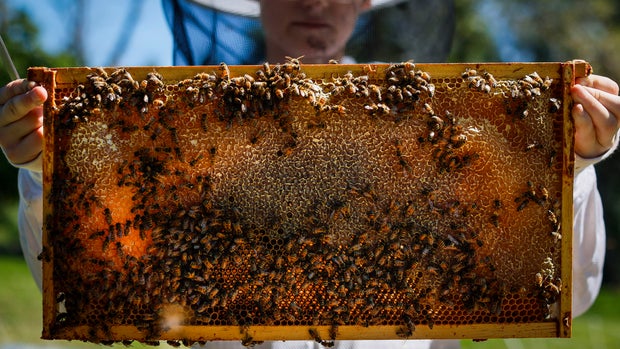Are bees still suffering from Colony Collapse Disorder?
BOSTON - Several years ago, Colony Collapse Disorder, the unexplained mass death of honeybees worldwide, was a serious issue.
The story faded from the headlines, but was it ever resolved?
The short answer is yes.
What is Colony Collapse Disorder?
"Colony Collapse Disorder stopped around 2011," Noah Wilson-Rich, the founder and CEO of Best Bees beekeeping services in Boston, told WBZ-TV. "We don't know why and we don't know what started it. It was associated with new pesticides hitting the market, but it's very unclear. Those bees vanished, no dead bodies, and now we see the dead bodies."
Wilson-Rich said the origins can be traced to 1987 when a mite came to the U.S. and changed the game for beekeeping. We need bees, our pollinators, for food. They are just not as healthy as they once were because of the mite and because of pesticides that can all lead to Colony Collapse Disorder.
"The mite attacks just like a tick. It will suck the blood of bees and make them very weak and transmit other diseases," Wilson-Rich said.
He started his company 15 years ago and now has 23 locations.
"We collaborate with NASA, so we look at their earth observation satellites to understand weather patterns and the impact of home gardens and bee hives and agriculture and how we relate the two," Wilson-Rich told WBZ.
Bees left more fragile
He said there are now a record number of bees in the U.S., but Colony Collapse Disorder left them more fragile. You don't have to be a beekeeper to help. We can all do simple things, like plant a flower.
"We need to do our part in order to help improve bee health," Wilson-Rich said. ""More beehives die in America every year than survive. Over half of beehives died last year."
"We really need to appreciate bees and not kill them or hurt them, but instead understand how can we help them," he said.





